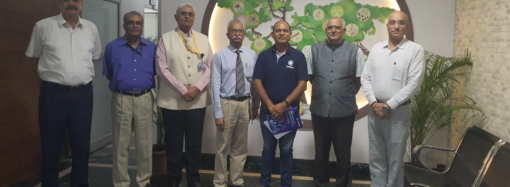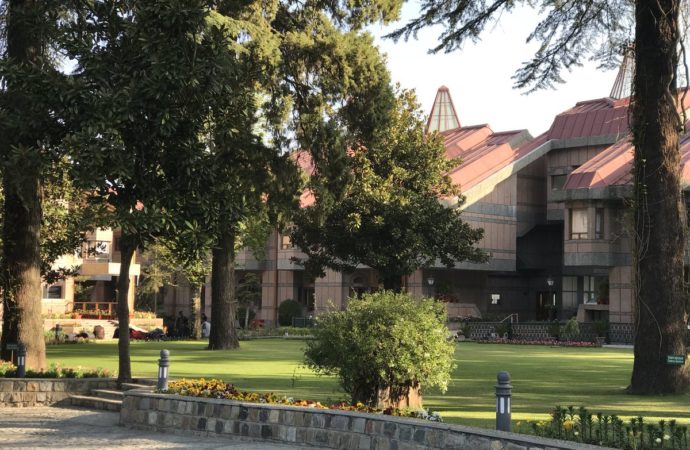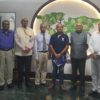– R. Sudarshan’, Dean, Jindal School of Government and Public Policy, O.P. Jindal Global University
Until recently in India, public policy has been regarded as a field of study that is meant only those in government who make decisions that affect people, or the public, at large. This is in stark contrast with the United States where there is no permanent cadre of officials at the policy-making level. Professionals from academia and corporate sector move in and out of government with every change in the political leadership at the federal, state, city and local government levels. These professionals, whether they are doctors, engineers, social scientists, philosophers, etc. have for long time in the USA sought an education in public policy, anticipating that they may be called upon by different political administrations to design and implement public policies.
The belief in India that public policy need concern only those already serving the government is another unfortunate legacy of the British Raj. The Indian Civil Service (ICS) was established in 1858. ICS officers held all the key posts ranging from policy making in the Viceroy’s office to managing the business of government in the two hundred and fifty districts that comprised British India. Jawaharlal Nehru declared in 1934 that the ICS was ‘neither Indian, nor civil, or even a service.’ However, when the constitution of India was drafted, a successor service, Indian Administrative Service (IAS) was created, incorporating safeguards for protecting tenure of service of its members.
On the advice of Paul Appleby (then the Dean, Maxwell School of Citizenship and Public Affairs, Syracuse University), the Indian Institute of Public Administration (IIPA) was established in 1954, with the Prime Minister himself as its founding President. Many other training centres for government officials were subsequently established, including the Lal Bahadur Shastri National Academy of Administration, Mussoorie, and state-level Administrative Training Institutes. These institutions cater to training needs of government officials, and to a lesser extent, of managers from the corporate sector and civil society organisations. Hence, they award diploma and not degrees recognised by the University Grants Commission.
Against this background, the master’s Programme in Public Policy in the O.P. Jindal University is a pioneering venture. This equips its students with skills and knowledge needed for a growing range of employment opportunities via lateral entry, into governments, in public-private partnership (PPP) ventures, in corporate social responsibility ventures, in international development-focused institutions and in civil society organisations.
The focus of public policy studies should be always on different social and political problems which have multiple facets that can be illuminated by insights form almost all the social science disciplines. Therefore, to gain a complete appreciation and understanding of a social and political phenomenon, policy studies must essentially be interdisciplinary and multidisciplinary in its intellectual, pedagogical and practical approaches. Keeping this in mind the school offers courses from a wide range of discipline comprising Economics (Microeconomics, Macroeconomics, Public Economics, Environmental Economics); Statistics and Data Analysis; Applied Econometrics; Programme Evaluation; Environmental Sciences; Political Science – Political Philosophy; Law; Governance and Institutions; Gender and Development; Economic Anthropology; and Sustainable Human Development.
There is a strong focus on ethics in the teaching of public policy. It helps students to hone their ability to make practical judgements about what is ‘right’ and what is ‘good’. Policies that have good consequences, benefitting a large number of people, may not be the ‘right’ ones if they violate fundamental rights of individuals guaranteed in the constitution of India. Focusing on the great moral challenges of our times – persistent poverty, growing inequality, climate change, globalisation, which leads to homogenisation of consumption patterns, on the one hand, and poses a risk to traditional forms of creativity and local legacies, on the other hand. The imperative to remove hunger and poverty, promote inclusiveness and equity, respect fundamental rights of people, are all related to the idea of ‘humanity’. This imperative serves as the fundamental ethical foundation for public policy.
People in all walks of life ought to become more knowledgeable about public policy. The ‘public’ should be brought back into public policy so that it is not hijacked by technocrats or ecocrats who may not know or appreciate what really matters to most people.Public policy is much too important to be left to policy makers alone, be they politicians, public servants, or experts. An informed public is the best guarantee for public policies that genuinely serve the public interest. Public policy programmes equip students to pursue multiple careers in different walks of life. Therefore, number of institutions teaching public policy is steadily growing in India. It is obviously an idea whose time has come.


















Leave a Comment
Your email address will not be published. Required fields are marked with *